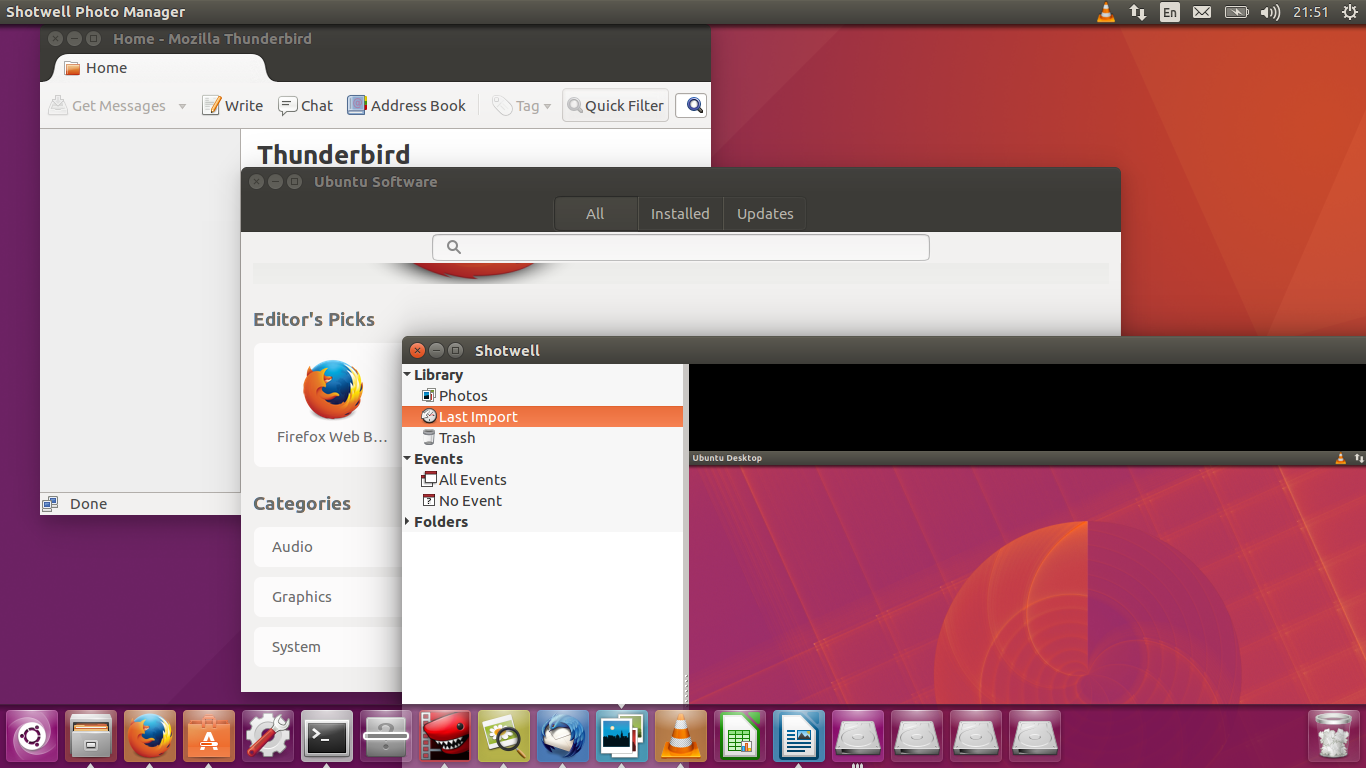Ubuntu 16.04 LTS is designed for both desktop usage similar to Mac or Windows as well as Server and cloud usage. Canonical, the company behind the free operating system is also putting efforts in “convergence” — that’s making its operating system available across a wide variety of computing platforms; desktop, server, tablet and mobile. If you’re particularly new to Ubuntu, for instance if you’re switching from Windows or Mac, you’ll find Ubuntu very stable, productive and secure operating system. The OS comes pre-loaded with a tonne of useful free productivity apps such as Libreoffice which is your MS Office free alternative, Shotwell, a great photo management app, Thunderbird which you could use to read/reply your emails, Rhythmbox for music, Firefox for browsing the web, Transmission torrent client and Software center (Gnome Software store) where you can download all other software.
Ubuntu gives you freedom. So you can customize your desktop experience the way you like; right from your desktop wallpaper, to system shortcuts to file manager, themes to the kernel itself. All the power belongs to you. Lets not forget the mighty commandline which by the way got ported officially to Windows 10. Now once you’ve installed Ubuntu, you are literary good to go. However, to enhance your desktop experience, we recommend some of the following applications;
Google Chrome — web browser Skype — make free international calls VLC — Watch videos and play music GIMP — basic and advanced image editing Telegram — secure desktop and mobile chat app Nylas N1 -– A modern, stylish email client Viber — a mobile and desktop Skype alternative Dropbox — cloud storage
If you are switching from Windows and you feel there are some Windows apps you simply can’t do without, then you can try using an emulator called Wine. You can also use Ubuntu to run a home or office server which can for instance serve your own internal website or share files or multimedia. If you are ready to give Ubuntu 16.04 LTS a try, download the ISO image here, then burn it on a CD/DVD or flash. You can install it alongside your windows installation if you have not completely made up your mind. Have you tried out Ubuntu, let us know your own experiences in the comments below.

